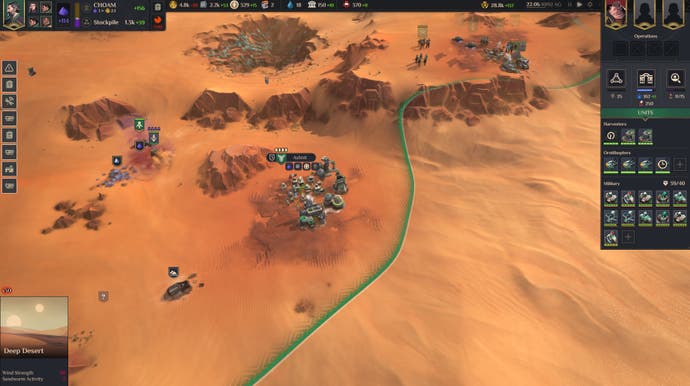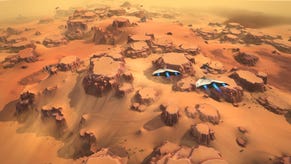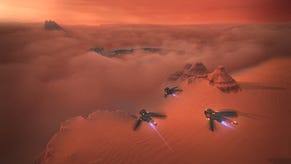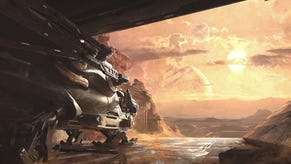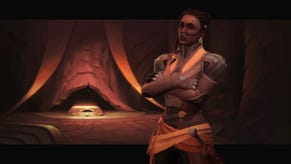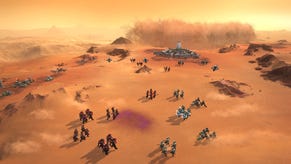Dev of upcoming Dune RTS went for "cartoonish" art style so looking at a desert planet for hours on end isn't boring
Shifting sands.
The developers of the upcoming Dune real-time strategy game say they went for a "cartoonish" art style so looking at a desert planet for hours on end isn't boring.
Dune: Spice Wars is in development at Northgard maker Shiro Games, and is set on Arrakis - Dune's famous harsh desert planet. The teaser trailer is below:
Arrakis is a whole lot of sand and not much else, which, Shiro Games said, presents a whole set of problems when it comes to making a video game set upon it.
The answer was to choose a "somewhat cartoonish and bold art style".
"Creating a game on a desert planet has quite a few challenges, one of which is making sure what you look at for a few hours is not bland even if it's just rock and sand," Shiro Games said in a freshly-published FAQ on Steam.
"We spent a lot of time working on the environment and even worked with a geologist specialised in deserts to create things that could exist on such a planet.
"The stylised art direction comes into play by adding things that bring a variety of colours and shapes so that the environment can stay harsh while not getting boring."
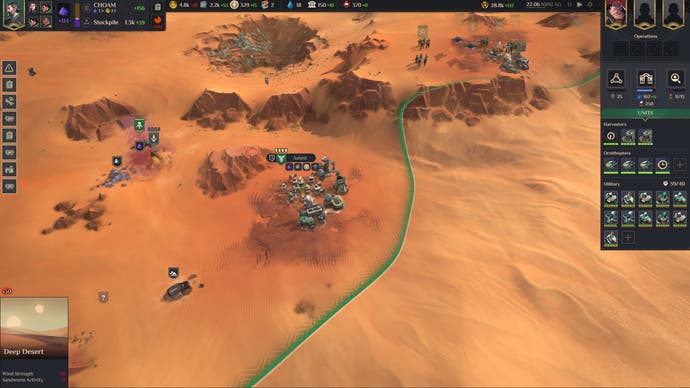
Shiro Games has yet to show off gameplay of Dune: Spice Wars, but it has confirmed a day / night cycle, which means players will see the bright orange daylight as well as the blue-ish, dark night.
Shiro Games has also said it has created variations on the default desert theme, including a Red Mesa theme, one based on salt, and a volcanic landscape.
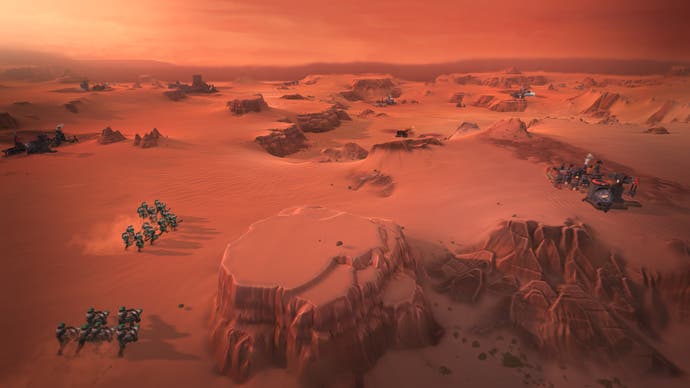
Dune: Spice Wars is based on Frank Herbert's Dune universe, as opposed to any film or TV show.
The game is real-time, but the pace is slower than in a typical RTS, Shiro Games said. You can also pause and fast forward.
There are standard 4X elements, too, such as exploration, territory control, economic growth, combat, politics and spying.
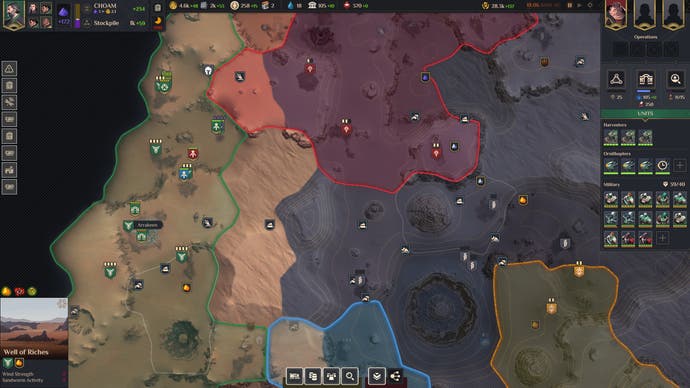
As for base building, you can construct buildings in your base of operation, such as Arrakeen for the Atreides. However, this is shown as structures added to the base itself and is interface-based, as Shiro Games put it.
You do not manually place buildings on the ground "as the game is at a much larger scale than your typical RTS", the developer added.
As for the houses, expect to play as House Harkonnen and House Atreides. Shiro Games said it plans to have two other factions at launch, with a fifth faction added during the early access period. Shiro Games is starting with what's in the books, and will take a look at what would work beyond that later (House Ordos, perhaps?).
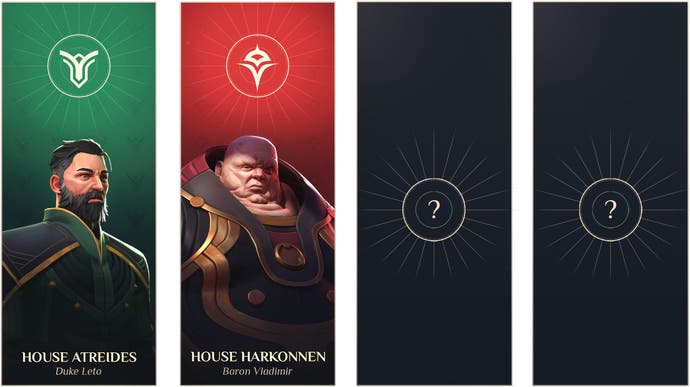
Meanwhile, maps are procedurally generated, with different options for size, wind strength, sandworm activity and more. Deep deserts are used as a kind of blocking feature (like seas in other games), until you develop technologies to survive longer in the desert, or build a network of airfields. Maps also include unique places readers of the book will recognise, Shiro Games teased.
Multiplayer is planned as an update during early access, and while the campaign will not be in the game during the initial launch, it's planned for early access, too.
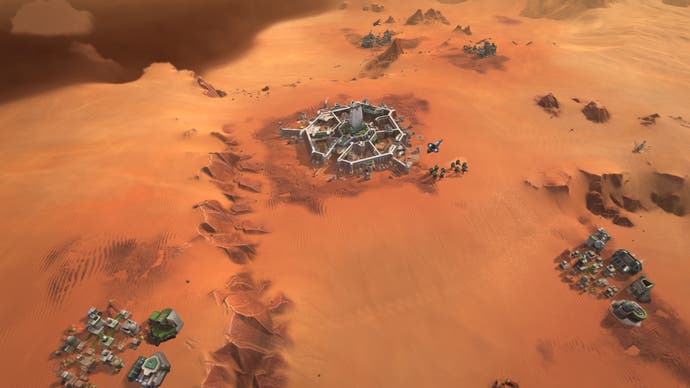
Dune Spice Wars is set for launch on PC via Steam at some point this year. Shiro Games will look at other platforms during early access.
